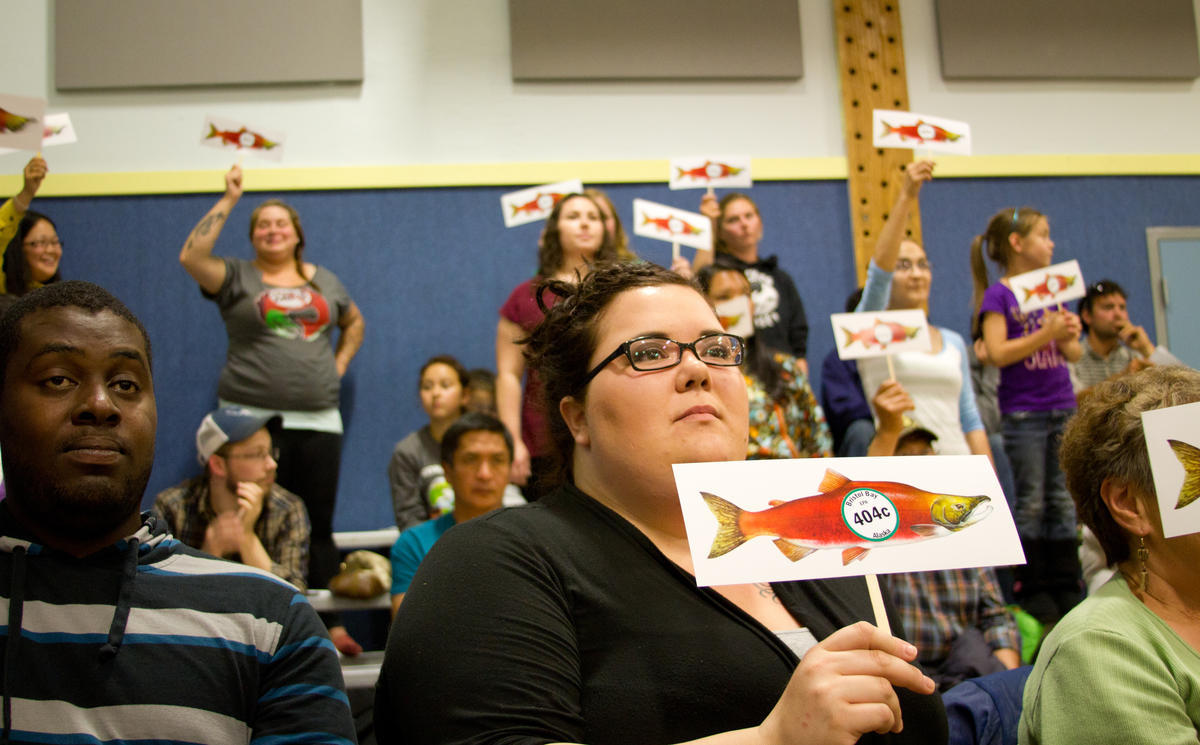
The company interested in building what would be the world’s largest gold and copper mine in Bristol Bay has downsized its information requests in its lawsuit over federal efforts to block the project, dropping subpoenas in two other states and Alaska.
The Pebble Limited Partnership filed suit against the Environmental Protection Agency last year, asserting that the agency acted improperly in its communications with individuals and organizations regarding what it calls a “pre-emptive” veto of the proposed mine project. To help prove its case, the company requested to subpoena more than 60 individuals and groups, including Trout Unlimited, the Bristol Bay Regional Seafood Development Association and several Bristol Bay area Alaska Native organizations. Some, including the United Fishermen of Alaska, have already provided emails or other documents related to the proposed mine. Others asked a judge to quash their subpoenas.
But after U.S. District Court Judge H. Russel Holland ruled against some of the subpoenas, the company withdrew additional subpoenas, said Pebble spokesman Mike Heatwole.
“We’re seeking to comply with the judge’s order and focus our discovery efforts now with the Environmental Protection Agency to see if that can fill in the gaps for the information we’re seeking about our FACA complaint,” Heatwole said.
Trustees for Alaska represents a handful of those who were subpoenaed: Nunamta Aulukestai, Cook Inletkeeper, Groundtruth Trekking, Kim Williams, Tim Troll and Tom Tilden. Attorney Michelle Sinnott said it was good news that the subpoenas have been withdrawn.
“These are people who love Bristol Bay, who have been working really hard to protect a world-class watershed,” she said. “This is their backyard. These are things they care about. And to be drawn into this federal litigation, is very expensive for these nonparties, it’s very expensive for individuals and nonprofits and native organizations to have to defend themselves against these sorts of discovery tactics.”
Holland ruled Nov. 18 that the requests to subpoena Bristol Bay Regional Seafood Development Association, the Alaska Conservation Foundation and individuals involved with those groups were “pushing the envelope.”
Sinnott said Holland’s decision indicated that the information Pebble was looking for was irrelevant.
“Our clients have the right to talk to each other about opposing the Pebble Mine, as part of their First Amendment constitutional right. They should be able to protect their backyard and talk to their government about protecting it.”
Not all of the subpoenas appeared to have been withdrawn as of Nov. 24, but Heatwole said he believed Pebble’s intent was to withdraw those remaining subpoenas, although the company might resume its efforts to access private communication if it can’t get what it needs from the Environmental Protection Agency.
Some had said the information requests seemed as much an effort to scare and quiet mine opponents as an effort to build Pebble’s case, but in its filing the company reiterated that it thought the emails helped prove that the Environmental Protection Agency had acted improperly.
“We’ve already received some documentation from other third party groups that are clearly of interest to our case and we note that in the court filing,” Heatwole said.
The filing included emails between Trout Unlimited staff and other consultants working against the mine, largely in regards to their efforts to provide justification for their position.
Pebble was also trying to subpoena Phil North, a former Environmental Protection Agency employee believed to be central to the case, but so far hasn’t been able to find him. He’s believed to have left the country after he retired.
In the company’s filing, attorney Thomas Amodio wrote that if the partnership cannot find North, it might be necessary to “seek communications from other nonparties who communicated with him ‘off the books’,” to get a complete sense of his role in the Environmental Protection Agency’s work.
